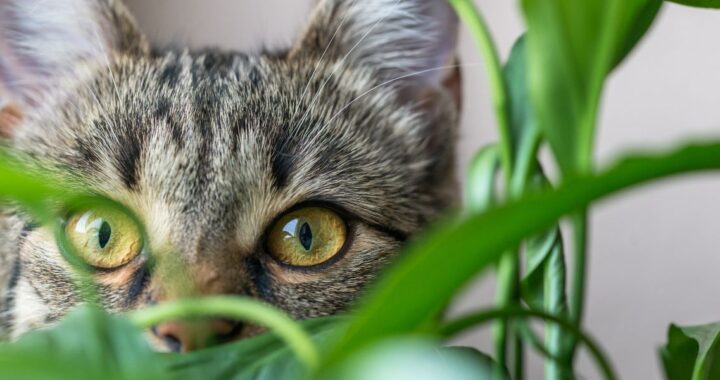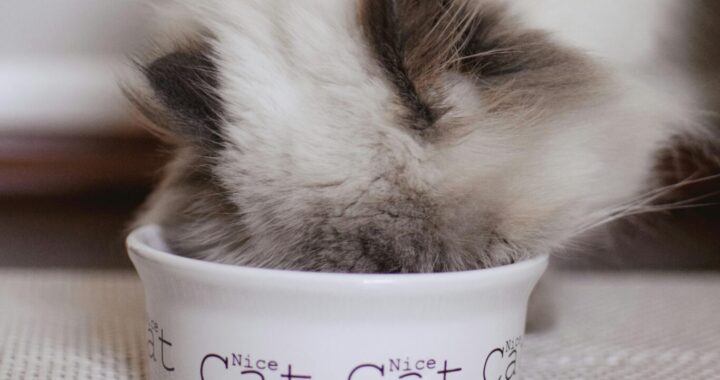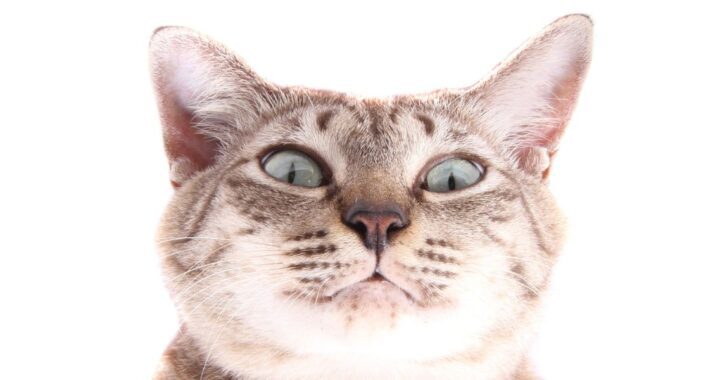Crisp air quality, reduced stress, and even cognitive support… The list of benefits our house plants offer us seems endless. It’s no wonder our cats are curious about them. Although plants can do wonders for our human health, the benefits can come at the expense of our kitties unless we take precautions. Read on for tips.
Why do cats care about plants?
While plants aren’t a must for your kitty’s diet, many cats chew on plants to help with digestion. According to David Drake, DVM, cats, like many other animals learn about their environment by putting things in their mouths. Although a nibble at your favorite spider plant won’t hurt your cat, a taste of the wrong plant could be fatal.
At the top of that list are lilies, all parts of plants in the true lily, and “daylily” families are life-threatening to kitties. Even pollen residue licked off of fur can send cats into kidney failure in under 72 hours. If you currently own lilies, make sure they are in a room your cat never has access to. The safest decision of all would be to avoid lilies altogether in favor of non-toxic plants.
Other common house plants to keep away from your cats:
Eucalyptus:
There are very few animals that can safely eat eucalyptus.
Daffodils:
Leaves and bulbs are both toxic to cats.
Azaleas:
The whole plant is toxic to pets. If ingested it can cause gastrointestinal, cardiovascular, and central nervous system issues.
Ficus:
Contain a proteolytic enzyme and psoralen which can cause gastrointestinal and dermal irritation if ingested.
Philodendron:
Also known as the sweetheart plant, can cause oral discomfort leading pets to drool, swell at the mouth, and vomit.
The Bamboo palm:
Not only is this plant non-threatening to cats, but it is also air purifying by cleaning Benzene, Formaldehyde, Trichloroethylene, and Toluene from the air.
Spider plant:
Spider plants are non-toxic and clean the Formaldehyde and Xylene from the air.
Money tree:
This non-toxic plant is thought to bring its owners good luck, fortune, and of course, air clean of harmful indoor pollutants.
Moth Orchid:
This is a great non-toxic plant to add to your household if you are looking to add a little more color to your space. The Moth Orchid also can absorb Xylene and Toluene from the air.
Wheatgrass:
If you’re looking for a gift specifically for your furry friend this is the plant for you. Not only is wheatgrass a good source of insoluble fiber, but it also provides your kitties with enrichment and helps with hairballs.
Whenever you are in the market for plants, it’s important to do research on what risks they may pose to your pets before you bring them home. This guide from the ASPCA is a great place to start your research. If your love of plants is well known, let family and friends know before they gift you with plants, they should do the same.








